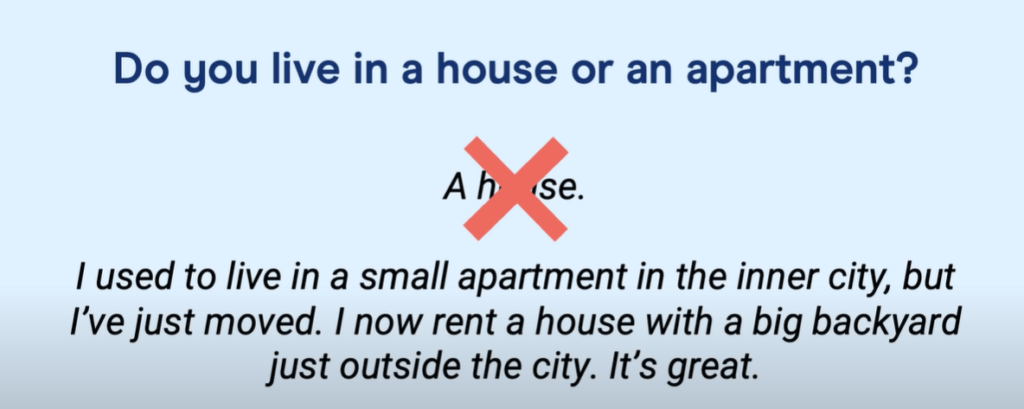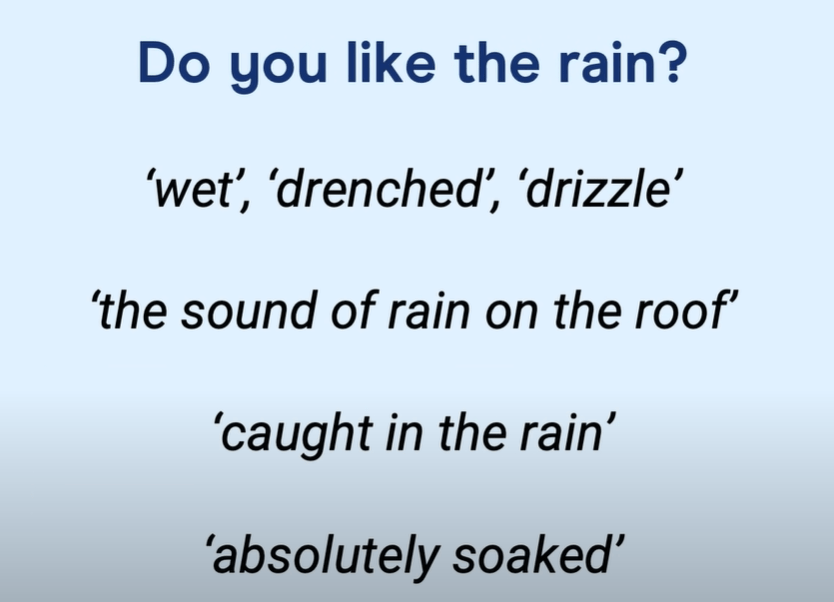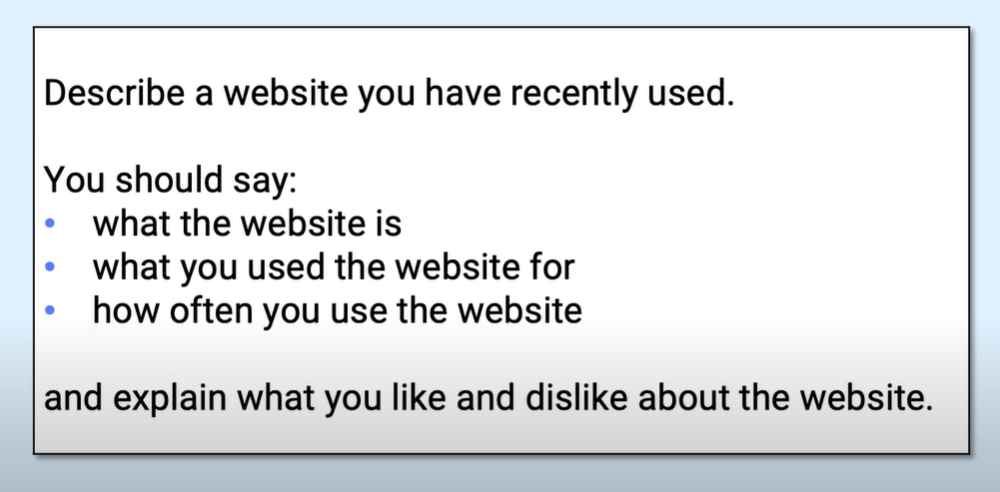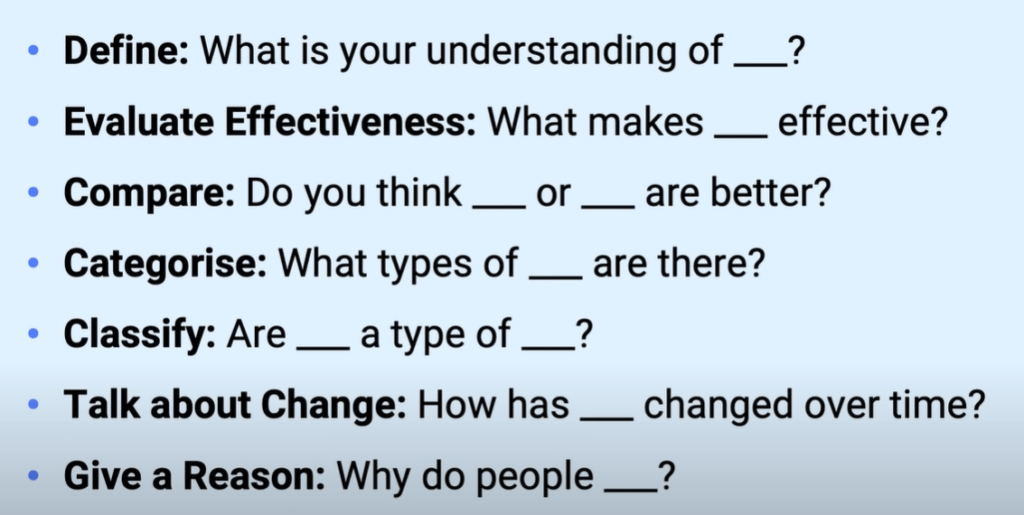In this article, I will be discussing nine common mistakes in IELTS speaking test. Read about these mistakes thoroughly and strive to avoid them on the day of your IELTS speaking test. ‘It’s easy to make simple mistakes in IELTS speaking that can cut your score. In this article, I’m not going to tell you what to do; I’m going to tell you what NOT to do to raise your score.
9 Common Mistakes in IELTS Speaking Test
Alright, I’ll give you three mistakes for each of the three parts of the IELTS speaking test. And make sure to stick around to the very end for some critical test day tips.
IELTS Speaking Part 1:
In Part 1 of IELTS speaking, you need to answer very straightforward questions about what you do, where you live, and what you think about everyday things.
Mistake 1: Being too Brief
A very silly mistake in Speaking Part 1 is answering in a single word or a short phrase. For example, if the examiner asks you, “Do you live in a house or an apartment?” Don’t answer with ‘a house’. Give a full extended response in two to three sentences. You can say something like this: “I used to live in a small apartment in the inner city, but I’ve just moved. I now rent a house with a big backyard just outside the city. It’s great.” Extend your responses.

Don’t speak for too long, but give a nice answer consisting of two or three sentences and try to show off some nice relevant language.
Mistake 2: Using a Memorized Answer
The first set of questions in Part 1 are repeated. For example, the very common questions are “Are you a student?” or “Do you work?” or “Do you live in a house or an apartment?” or sometimes you might even get a repeated question like this: “Do you like the rain?” It’s a really good idea to practice answering these types of questions before test day. But don’t memorize answers.
When you memorize an answer, you just put unnecessary pressure on yourself because you’re storing information in your mind. Trust yourself. You know how to answer these types of questions. There’s no need to have a memorized response. On test day, relax, and speak naturally, as if this were a friendly conversation with someone at a bus stop. Form the ideas in your mind and let your language describe those ideas.
Mistake 3: Adding in Irrelevant Memorized Words
There are some teachers out there, who tell you to “use this word to get a 9”. This is absolute nonsense. There are no magic words. There are, however, relevant and irrelevant words.
If you’re asked a question such as this, “Do you like the rain?” Then you might mention related words such as wet, drenched, drizzle, or phrases such as ‘the sound of rain on the roof’ or ‘caught in the rain’ or ‘absolutely soaked’.

These types of words are the words that you want to use on test day. Why? Because they’re relevant. Adding a word like ‘plethora’, just because it sounds fancy may decrease your score if you use it incorrectly or if it’s not a natural use of the word. So stick to the relevant words. [common mistakes in IELTS speaking test]
IELTS Speaking Part 2
Let’s look at three mistakes to avoid in IELTS Speaking Part 2. In IELTS Speaking Part 2, you are given a task card and you will have one minute to prepare and then two minutes to speak.
Mistake 4: Thinking You Cannot Deviate from the Task Card
You absolutely are allowed to deviate from the task card. The task card is just there to guide you. The prompts can be very useful to help you in your thinking. But by no means do you have to stick to them strictly. For example, imagine you’re asked to speak about a website. And at some point, you begin to talk about a phone app or even a computer game. Or perhaps the first time you used the internet, which is not contained within this task card.

This is absolutely fine. It deviates from the task card, but it is still on the basic topic. Don’t talk about your favorite footballer if they ask you to talk about a website. But as long as it’s related, it’s fine. There’s nothing in the speaking scoring about staying on topic. [common mistakes in IELTS speaking test]
Mistake 5: Going Round and Round in Circles
One of the most common mistakes candidates make is not having any kind of strategy or approach for Part 2, and then they finish in about 45 seconds, and then they spend the next minute or so repeating themselves going around and around in circles in a type of IELTS speaking death spiral.
This is problematic because you don’t exercise a wide range of language; you’re just saying the same thing again and again. I really recommend that you use a strategy on test day. This is not a memorized template but a way to approach each and every task card you see on test day. A strategy that allows you to stay on topic but use wide-ranging grammar and vocabulary.
Mistake 6: Thinking you’ve made a Mistake when the Examiner Stops You
In Part 2, if the examiner stops you, it’s not because you’ve done something wrong. It’s because you’ve reached the two-minute mark. So even if you’re halfway through your sentence, the examiner will ask you to stop by saying: thank you. Don’t let this upset you. You will not lose points for speaking for the full two minutes and being stopped.
IELTS Speaking Part 3
Now let’s move on to IELTS Speaking Part 3. In IELTS Speaking Part 3, you will have a conversation with the examiner. The topic of the questions the examiner will ask you will carry on from Part 2. So for example, if you have been speaking about a website, then in Part 3, you will answer more complex questions about the internet. It’s a great opportunity to begin to extend your language to its capacity.
Mistake 7: Thinking you Cannot ask the Examiner to Repeat the Question
The questions in Part 3 can be quite complex. Typically the examiner will ask you to define, evaluate effectiveness, compare, categorize, classify, talk about change, give a reason.

If you don’t understand a particular question, you are absolutely allowed to ask the examiner to repeat it. This is much better than speaking off-topic and making yourself flustered because in the back of your mind, you know that you’re off-topic. In short, if you don’t understand something, you can simply ask, can you please repeat that? [common mistakes in IELTS speaking test]
Mistake 8: Placing too much emphasis on Grammar
Part 3 is definitely the place where you’re going to want to extend your ideas using some more complex grammatical structures. But you should never strain to create perfectly grammatical sentences. By focusing too much on grammar on test day, you will disrupt your pronunciation and coherence scores.
So you need to find your balance, the place where you are exercising a wide range of grammatical structures but not going over the edge and umming and ahhing, trying to make it sound perfectly accurate. Yes, grammatical accuracy is great, but not at the expense of dynamic pronunciation.
Mistake 9: Not Giving Thoughtful Answers
Part 3 has been designed to take your ideas and your language further. The questions are quite deep so that your answers can convey a wide range of interesting ideas and vocabulary. To express thoughtful ideas. You’ll need flexible grammar and some less common vocabulary. There may be situations where you need to buy some time to think of an answer.
So if this happens, you can always say something like, hmm, I suppose, or I think, or I reckon, or Hmm… So one of the things that comes to mind is…

These types of phrases will give you a few more seconds to think of your response, and try your best to give a thoughtful response. Again, let the ideas lead and let the language follow. Your language, the words you use, should really just describe the ideas you have in your head. [common mistakes in IELTS speaking test]

IELTS Speaking Test Day Tips
Alright, here are some final IELTS Speaking Test Day Tips:
- There are no right or wrong answers: You’re not there to give the right answer. You’re there to express yourself as best you can and to show off your language skills.
- IELTS speaking is not a job interview: IELTS Speaking is quite informal. Think of it like a conversation with a curious and kind stranger, rather than a kind of job interview. And this actually extends into what you wear. You should wear something smart and comfortable, not something formal that you would feel uncomfortable wearing.
- Don’t forget your passport or ID: Make sure you arrive early to your speaking exam. Make sure you have had something to eat, make sure you’ve had a good night’s sleep, and make sure to bring your ID.
- Don’t take IELTS Speaking without doing a mock exam: It’s essential that you get a feel for what it’s like to take an IELTS speaking test. And this doesn’t mean that you take it with your partner or a friend. You want to feel a little bit of pressure.
- Be courageous: The final test day tip. You’ll probably be nervous leading up to test day and on test day. This is fine, accept it, use it to your advantage. Remember to be courageous. Think of your nervousness as the fuel that will help you give great answers. By preparing properly, you can turn your negative nervousness into positive excitement and be courageous. [common mistakes in IELTS speaking test]
Students Also Read: Best Way to Improve IELTS Speaking Score | 7 Tips and Tricks